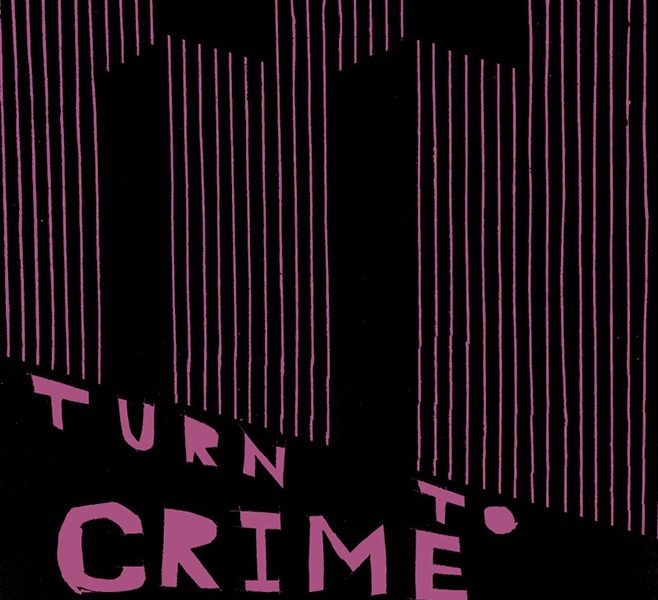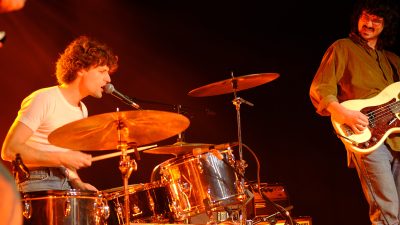Turn to Crime may have “Actions” but what else do they need?

by Scott Wilson
The best way to think about Actions, the second album from the minimalist synthetic punk group from Detroit, Turn to Crime, is by analyzing what’s it’s doing, what works, and what doesn’t.
Composition-wise, Turn to Crime makes use of a keyboard, guitar, drums (possibly a machine), synthetic Nintendo noises, and western-punk-affected vocals. All the hooks and melodies throughout Actions are simple, and rarely do all the instruments play at the same time, but take turns in different parts, kind of like jazz. These elements are then held together through repetition, lots of repetition. The first song, “This is What You Wanted”, is a six-and-a-half minute combination of short instrumental hooks or pithy phrases, played exactly the same, in turn, over and over. The concept is on point, but the mix of repetition, simplicity, and length can get tiring.
Actions also suffers from cliché, and other forms of predictable lyricism. In this context, cliché is a string of words that have been used in pop music, conversation, and literature to such excess that they no longer carry much meaning. You hear it and say, “uh-huh” and move on without thinking. The title track uses the sentence, “Actions speak louder than words,” which is a phrase we often say as a shortcut, a way to make a point without working too hard. Turn to Crime then takes this cliché and repeats it over and over, making it into complete nonsense as the preceding lyrics for which the phrase pertains become overshadowed. On a metaphorical level the goal of this might have been a show of self awareness; they might have been showing how rhetoric of action, when repeated often without backing, loses its value. But the problem with art designed to show petulance is that it often succeeds.
The other problem with the simplicity of lyrics is that they’re predictable; too often Turn to Crime turns to the lowest hanging rhyme on the tree of lexical choices. “All these clowns try to hang on to their youth, and I’ve found no one ever tells the truth” is a line taken from the single, “Prince of Slackers”. This quote is spoken slowly, so it feels a little frustrating after he says “youth” to have to wait for the inevitable rhyme “truth,” that the listener has already predicted. It’s like somebody telling you a joke that you’ve already heard; you’re just going through the motions until the end.
One could be forgiven for thinking, then, that this is a bad album -but it isn’t. Though some could construe the lyrics of Actions as lazy, a case could also be made for the fact that when said through the lead singer’s calming voice to the background of rhythmic drone, the obvious rhymes become comforting rather than trite. Although the lyrics are clear and noticeable, they can take on the feeling of just another instrument, taking turns with the rest. In a music climate where over-production is the new minimalism it’s relieving to hear a band with true Spartan sensibilities. Musically, they only have what’s needed to make a song sound good, with no excessive embellishments or effects.
Many songs off Actions are also catchy; even after just one or two listens it’s enough to get the tune in your head, meaning that you don’t need to concentrate to enjoy a song, much like most top forty pop music, but you aren’t feeding into what some describe as the patriarchal and hegemonic big music industry. It’s easy; it’s indie; it’s fun. One song, “Light,” is so bold and unapologetically poppy that it urges the listener into movement while the next song, “Impatience” is so weird it stops the listener and begs their attention. These surprises are worth the blandness of the less successful songs.
Actions is an imperfect album, but it is not without charm. It’ll be released on 4/28 wherever music gets released these days.













